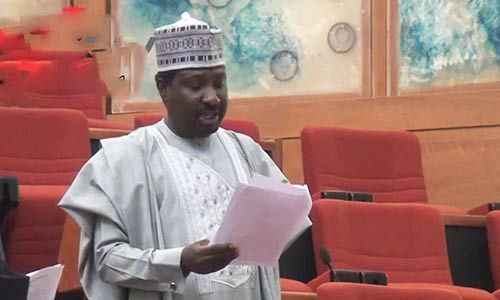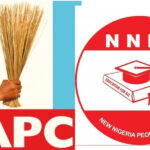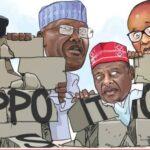In every election season in Nigeria, the North West functions as the centre of gravity because of the votes at stake there. But beyond serving as a reliable vote bank, the geopolitical zone has remained the strongest ally of the All Progressives Congress since 2015. But, for the first time, they were not on the party’s presidential ticket. Yet, they stood with the APC to ensure the emergence of Asiwaju Bola Ahmed Tinubu and Senator Kashim Shettima as the next leaders of Nigeria.
The North West’s loyalty to APC easily guaranteed the party’s victory in the presidential election, giving Tinubu and Shettima cumulative votes of 2,652,235 out of the 8,794,726 votes polled in the entire country, even though the flag-bearer of the main opposition party, the Peoples Democratic Party, is also a northerner, and the story is even more interesting in Kano State. Tinubu defeated Atiku in both the North West and in Kano State.
Kano State also gave APC its second-highest votes in the presidential election, after Lagos State. Tinubu polled a whopping 517,341 votes against Atiku’s paltry 131,716 votes and Peter Obi’s 28,513 votes to cement his lead in the election. This was achieved despite the overwhelming presence of NNPP’s Rabiu Musa Kwankwaso, who was dedicated to denying the APC such a large number of votes. It was a hard-fought battle, and the message here is that the sub-region, especially Kano State, isn’t a fair-weather friend of the APC.
Elections have always been a game of numbers, and APC knows this more than any other party. This pragmatic look at the election explained their choices of candidates and decision to settle for candidates from the regions in which they are sure of support, and partake in political permutations with the best payoffs. That Tinubu got over 30 percent of the entire votes he polled in the country from the North West alone is the reason to make sure that the geopolitical zone is fairly compensated in the next government.
- My dream is to fill the gap left by my father – Hannafi Ibro
- DJ Cuppy donates £100,000 to the University of Oxford
There are two strategic reasons to consider in prioritizing the North West if APC is indeed concerned about retaining their hold on power beyond 2027. The first is: Senator Kwankwaso’s growing influence in the geopolitical zone is a threat that must be taken seriously, and nothing can neutralize Kwankwaso’s politics than having a principal figure of the government from the North West, especially his main base, Kano State.
The second is: the people of the North West are going to cite their position in the Tinubu-led government when choosing their leaders in the next election – and APC can’t afford to lose an ally with such numerical size and voting power.
With the executive roles already taken by Tinubu and Shettima, the battle for compensation has been in the National Assembly. Each of the nation’s six geopolitical zones, aside from the South-West and the North-East, has been campaigning for the Presidency of the Senate and the Speakership of the House of Representatives, and the former has been the most keenly-contested.
One of the leading candidates in the race is Senator Barau Jibrin of the All Progressives Congress, and his legislative credentials speak for him. He’s been at the National Assembly since 1999, and possesses the experience to not only complement the Executive branch and coordinate the ruling party’s politics, but also manage the affairs of the legislative chamber without the usual infighting.
Senator Barau’s emergence as Senator representing Kano North despite the storm generated by the NNPP in the state is a testimony to his political pedigree. He’s the heavyweight APC needs to re-establish a strong presence in Kano State and across the North West. He won his election by a landslide, polling 234, 652 votes to defeat the candidate of Kwankwaso’s New Nigeria People Party (NNPP), Abdullahi Baffa, who polled 177,014 votes.
Additionally, Senator Barau’s experience cuts across the nation’s two federal legislative chambers. He was in the House of Representatives from 1999 until 2015, when he ran for Senate and won. So, it’s familiar terrain for him, and he’s built to manage relations much more than any colleague campaigning to be the next Senate President.
What has also set Senator Barau apart from his colleagues who have declared interest in the Senate presidency is his emotional maturity and scandal-free career. He has no record of any dubious dealings, and neither does he have career-wrecking court cases and financial scandals trailing him. Nigeria’s next President of the Senate must demonstrate that he’s not haunted by such distractions, and Senator Barau fits the profile – a gentleman extraordinaire.
APC must sit back to weigh its electoral future and choices before making this big decision, because this position would determine whether they want to stay in power beyond 2027 or end up dislodged by the opposition parties.
Abdulkadir Jalo is a writer and public affairs analyst based in Abuja.

 Join Daily Trust WhatsApp Community For Quick Access To News and Happenings Around You.
Join Daily Trust WhatsApp Community For Quick Access To News and Happenings Around You.


